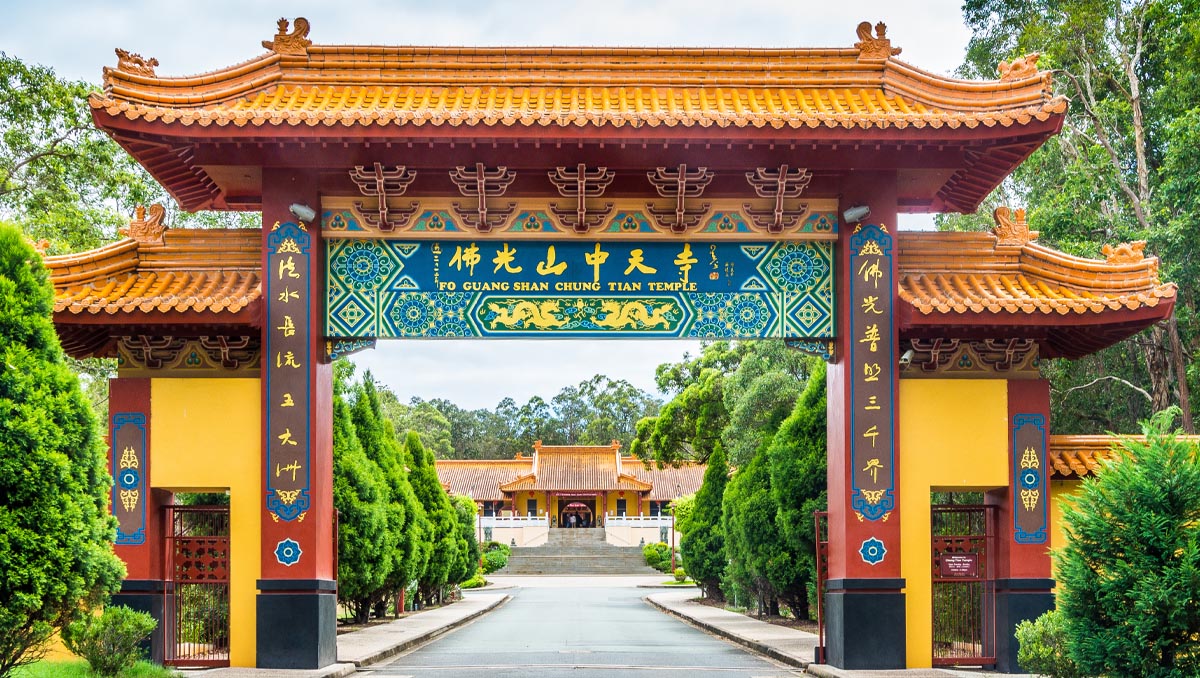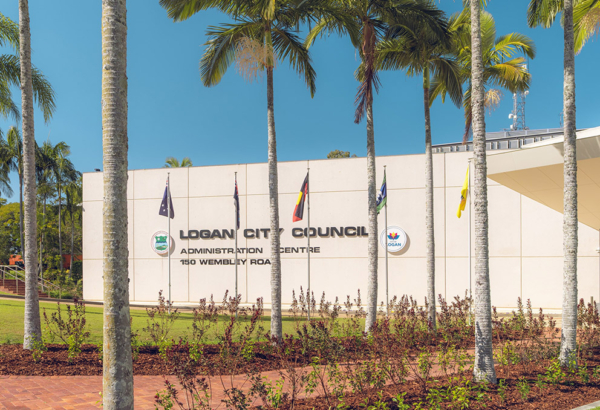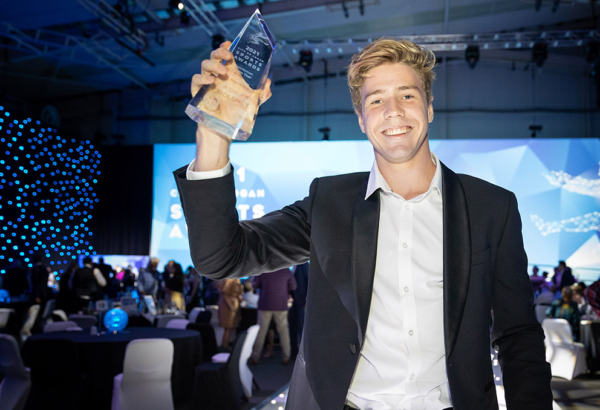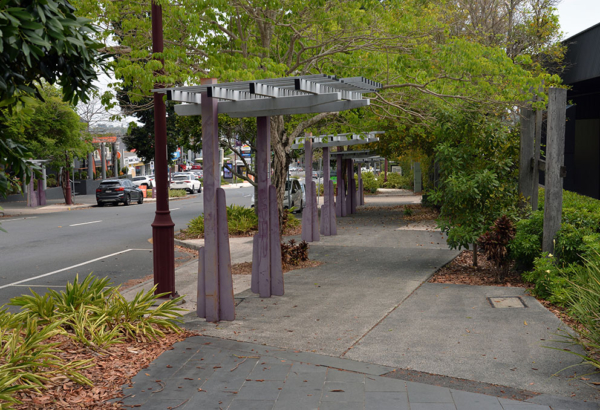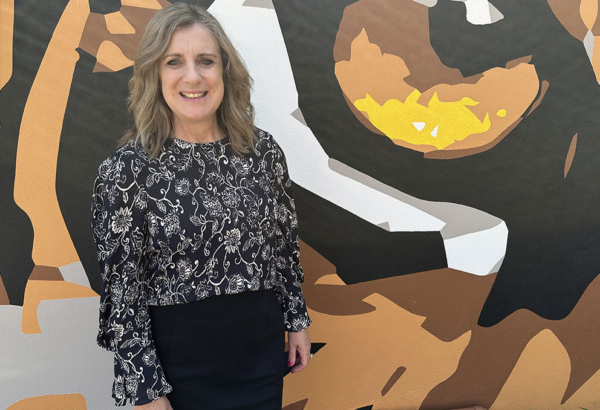A day in the life at Chung Tian Temple
For Venerable Manwang, Abbess of Priestdale’s Chung Tian Temple, Buddhism is more than religious devotion. She takes a hands-on approach to overseeing temple operations, where every day is anything but predictable. Although monastic traditions like chanting are set in stone, her activities can range from preparing for a dharma talk to learning how to play the drums for upcoming events.
Born in Taichung, Taiwan, Venerable Manwang encountered Buddhism during her university years. She spent her term breaks at the local monastery where she pondered about her purpose. Her goal was to find the ultimate truth in life – which she has since found in Buddhism. Part of her religious journey was moving to Australia in 1989 and joining Chung Tian Temple in 1991.
Those at the Chung Tian Temple have been busy preparing for the Buddha Birth Day Festival, which has become one of Queensland’s most celebrated cultural events. The festival will take place from 28 April to 30 April 2023 at the temple.
We asked the Abbess to share what a typical day might look like for her.
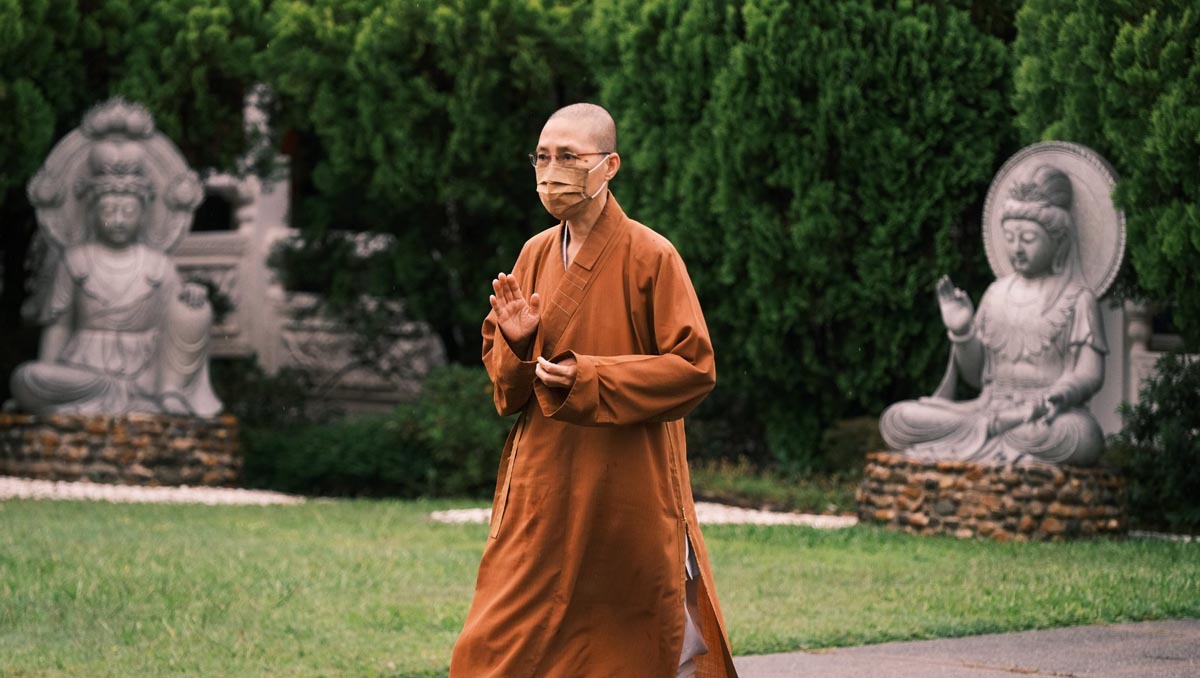
5:30 am: I wake up at this time and the day starts at 6 am, when we chant for an hour to express our gratitude. I then lead a group dharma talk for about 30 minutes – this talk is open to the public on the weekend. We’re also one of the few temples in the world that does chanting in English. The only other temples are located in Wollongong, Sydney and Melbourne.
7:30 am: This is when I have my first meal of the day – it can be any kind of daily food, as long as it’s vegetarian. Usually it’s something like salad, yoghurt, cheese, or milk. After that, we do a little bit of cleaning.
9 am: This is when the gates open to the public and I start my daily work. There’s a bit of everything: office admin, cultural projects and things we do to educate others. A lot of the day is allocated to self-training – reading, writing and reflecting upon my work to learn more. Every time I host a dharma talk or lecture, the words I say impact myself as well as others. Our founder, Venerable Master Hsing Yun, emphasised self-awareness and that when we talk to people, we really are talking more to ourselves. When I give a lecture, I’m really teaching myself and learning.
1 pm: After lunch, I’ll do more self-training depending on what we have coming up. Presently we have the Buddha Birth Day Festival soon, so that takes a lot of time in my day. Before I became a venerable, I didn’t know how to organise an event or play the drums but when people need you, you must go and learn. We aren’t professionals but we take responsibility to try to do the best we can. Most recently with our expansion, I had to learn how to read architectural drawings, invoices, financial reports. I’m not an architect or a construction manager but I needed to learn myself because we don’t receive financial support.
3 pm: Depending on the day, I might speak with devotees. For example, recently one of our members called us about their grandma passing away and asked if we could conduct a service for his children and grandchildren. Talking to lots of people and learning to let go is also a form of practise for me. If you listen to lots of sad things, it will be a burden. I’ve moved monasteries many times because you learn more, support more people and prevent yourself from getting too attached to any place. I have no favourites, the entire world is a good world.
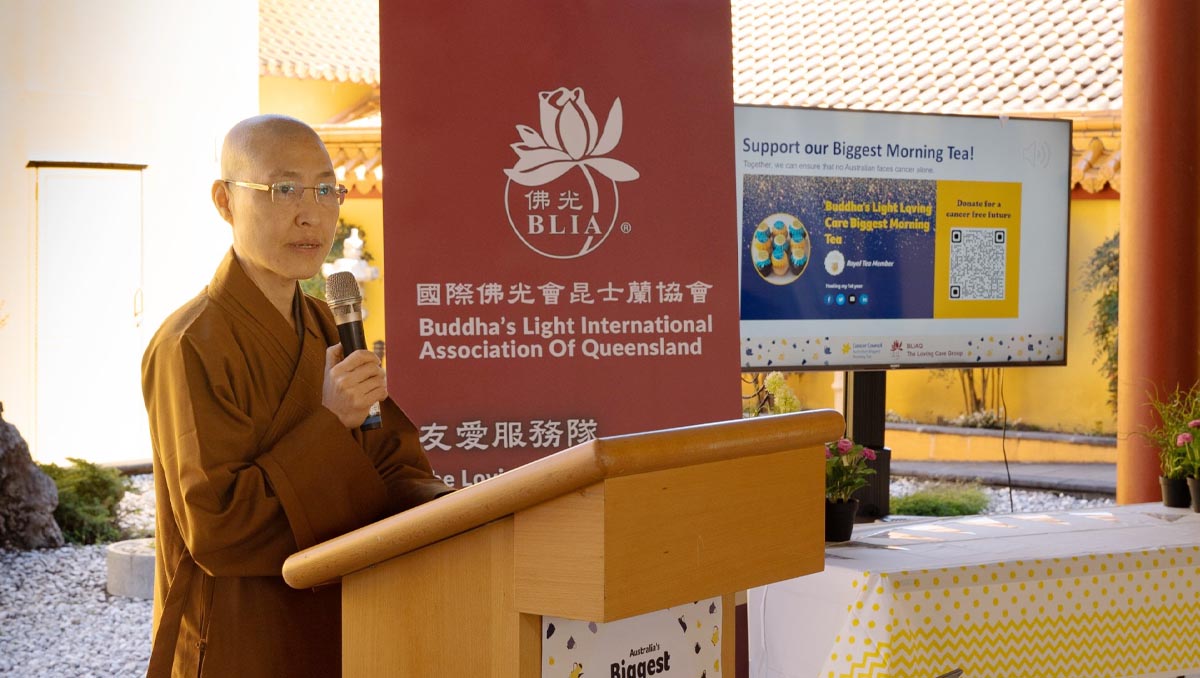
4 pm: My day also has lots of meetings to organise things for the community. We set aside time to plan religious chanting services or to meet with the teachers to plan curriculum for the Chinese school. We also have a Scout group with younger kids and they need things from time to time – like if they want to host an arts exhibition, they need a space.
10 pm: The work continues with duties in the kitchen, reception, and library. I usually finish by 10 pm every night if there aren’t any major events coming up and start chanting before bed. What we practise every day is a way of life – it all comes back to the Three Good Deeds through your mouth, thoughts and actions. Say good words, think good thoughts and do good deeds.
Learn more about Chung Tian Temple on their website.
For more information, check out the official website for the Buddha Birth Day Festival or Facebook for the latest updates.
